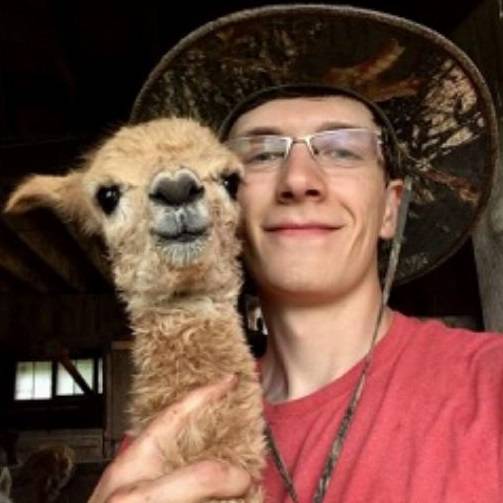 |
Dyllan MayThe effect of intensified illuminance and artificial light at night on fitness and susceptibility to abiotic and biotic stressors |
|
Dyllan May is a junior studying Biology and Environmental Studies. In addition to his scholarly interest in the biological sciences, May's love for the outdoors and animals have him working/volunteering with alpacas, horses, and other farm animals in his free time. May joined the Summer Scholars Program after several fellow researchers in the Hua Lab suggested he apply. He took advantage of the program's flexibility which allowed him to continue working on a project designed to determine the effects of differently lit environments on the fitness and susceptibility of a common tadpole species. The goal of the experiment was to see how human development could indirectly be affecting aquatic ecosystems. May attributes the idea for his project to "caring for my sad, defenseless three-legged toad, Irwin, who lost his leg to a lawnmower and helped inspire me to embark on this research journey to investigate the effects of human activities on amphibians and other creatures of the world we share". Working with biotic factors always poses a challenge, and as May discovered throughout his four-month project, the maintenance of hundreds of animals and experimental units often led to frequent and unexpected mishaps that "...Mercilessly sought to destroy the scientific fruits of my labor, for instance, when all of the tadpoles unexpectedly began metamorphosing in the single weekend that I was out of town". Working closely with his lab-mates, May was able to determine that "tadpoles exposed to increased illuminance for 24 hours had a marginally higher susceptibility to road salt, a significantly higher susceptibility to parasitic infection, and significantly less movement throughout the day and night than tadpoles of the same species in light environments reflecting more naturally occurring light environments" These findings are currently in review for submission and publication in a peer-reviewed journal. For more information on his work, visit the Hua Lab
|
|